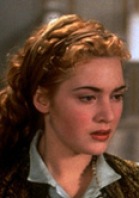Main Characters
Hamlet, Prince of Denmark

Obviously, the main character in this play. Hamlet is arguably the greatest dramatic character ever created. From the moment we meet the prince, we are enraptured by his elegant intensity. Shrouded in his cloak, Hamlet is a man of radical contradictions -- he is reckless yet cautious, courteous yet uncivil, tender yet ferocious. With the death of his father and his Uncle marrying his mother, Hamlet is is complete disgust with his mother, and hatred with his "step-father." He uses the fragile and innocent Ophelia as an outlet for his disgust towards the queen, and cannot comprehend that his own vicious words have caused her insanity. Hamlet is full of faults. But how is it that even seemingly negative qualities such as indecisiveness, hastiness, hate, brutality, and obsession can enhance Hamlet's position as a tragic hero; a 'prince among men'?
Ophelia

Hamlet's once-love; of all the pivotal characters in Hamlet, Ophelia is the most static and one-dimensional. She has the potential to become a tragic heroine -- to overcome the adversities inflicted upon her -- but she instead crumbles into insanity, becoming merely tragic. This is because Ophelia herself is not as important as her representation of the dual nature of women in the play. Ophelia's distinct purpose is to show at once Hamlet's warped view of women as callous sexual predators, and the innocence and virtue of women. The extent to which Hamlet feels betrayed by Gertrude is far more apparent with the addition of Ophelia to the play. Hamlet's feelings of rage against his mother can be directed toward Ophelia, who is, in his estimation, hiding her base nature behind a guise of impeccability.
Gertrude

Hamlet's mother. Gertrude is, more so than any other character in the play, the antithesis of her son, Hamlet. Hamlet is a scholar and a philosopher, searching for life's most elusive answers. He cares nothing for this "mortal coil" and the vices to which man has become slave. Gertrude is shallow, and thinks only about her body and external pleasures. Like a child she longs to be delighted. We do not see much of her in daily activity, but if we could we would see a woman enraptured by trinkets and fine clothes, soft pillows and warm baths. Gertrude is also a very sexual being, and it is her sexuality that turns Hamlet so violently against her. Even though Hamlet lashes out at her with all the rage he can muster, Gertrude remains faithful to him, protecting him fron the King. And, although her love for Claudius is wrong by moral standards, she is now his queen, and remains loyal to him. We see she has the potential for great love -- she wants to protect Claudius from the mob, and she cares deeply about Ophelia and Polonius, and is concerned for Hamlet in the duel even though she has no idea that it is a trap. It is Gertrude's underlying propensity for goodness that redeems her.
Claudius

Hamlet's Uncle AND "step-father." As with all the supporting characters in Hamlet, Claudius is not developed to his full potential. His primary role in the play is to spawn Hamlet's confusion and anger, and his subsequent search for truth and life's meaning. But Claudius is not a static character. While his qualities are not as thoroughly explored as Hamlet's, Shakespeare crafts a whole human being out of the treacherous, usurping King of Denmark. When we first see Claudius, he strikes us an intelligent and capable ruler. He gives a speech to make his court and country proud, addressing his brother's death and the potential conflict with Norway. Claudius knows that a change in government could ignite civil unrest, and he is afraid of possible unlawful allegiances and rebellion. His speech juxtaposes the people's loss with the new beginning they will have under his care, and he uses the death of Hamlet's father to create a sense of national solidarity, "the whole kingdom/To be contracted in one brow of woe" (I.ii.3-4).
Laertes

Laertes is Polonius's son and Ophelia's brother. He has come to Denmark for King Claudius's coronation. In his first appearance in Act 1 Scene 2, he seeks permission to return to France. When he appears again in Act 1 Scene 3, Laertes bids his sister Ophelia farewell and warns her about Hamlet. He advises her that Hamlet can't choose a mate for himself alone, but, being the prince, must think of the state. Thus, he cautions Ophelia to protect her virtue. He is a constant problem, and somewhat an enemy of Hamlet's although we come to find out that the two have more respect for each other than originally thought.
Horatio

Hamlet's confidant; Horatio's role in the play is minor and most critics agree that he is not developed beyond a character foil for the great Prince. However, Horatio serves two purposes central to the drama, and it is through these purposes that we can best discuss those qualities that make Horatio memorable. Horatio is our harbinger of truth. It is through Horatio that the actions taken by Hamlet and other characters gain credibility. He is the outside observer to the madness. Hamlet could soliloquize to no end, but it is his conversations with Horatio that ground the play in reality. Horatio believes Hamlet and thus we have permission to believe. He sees the Ghost and so we can believe that Hamlet has seen the Ghost. If Horatio were not there, Hamlet's sanity would truly be in doubt. Horatio's second purpose is to be Hamlet's one true confidant. Apart from Hamlet's soliloquies, his conversations with Horatio are the only insight we have into what the Prince is really thinking and feeling.

